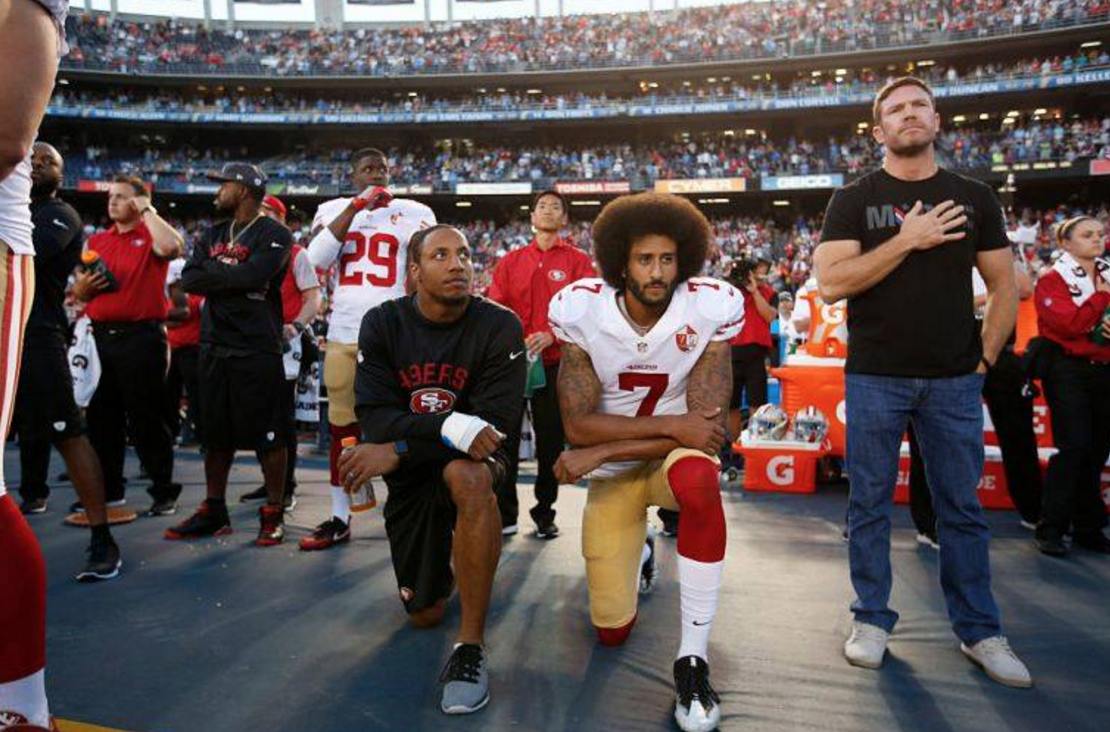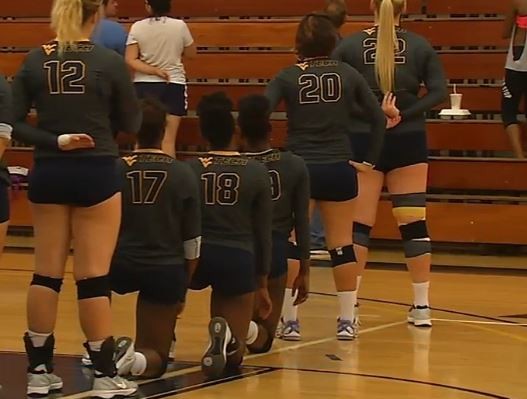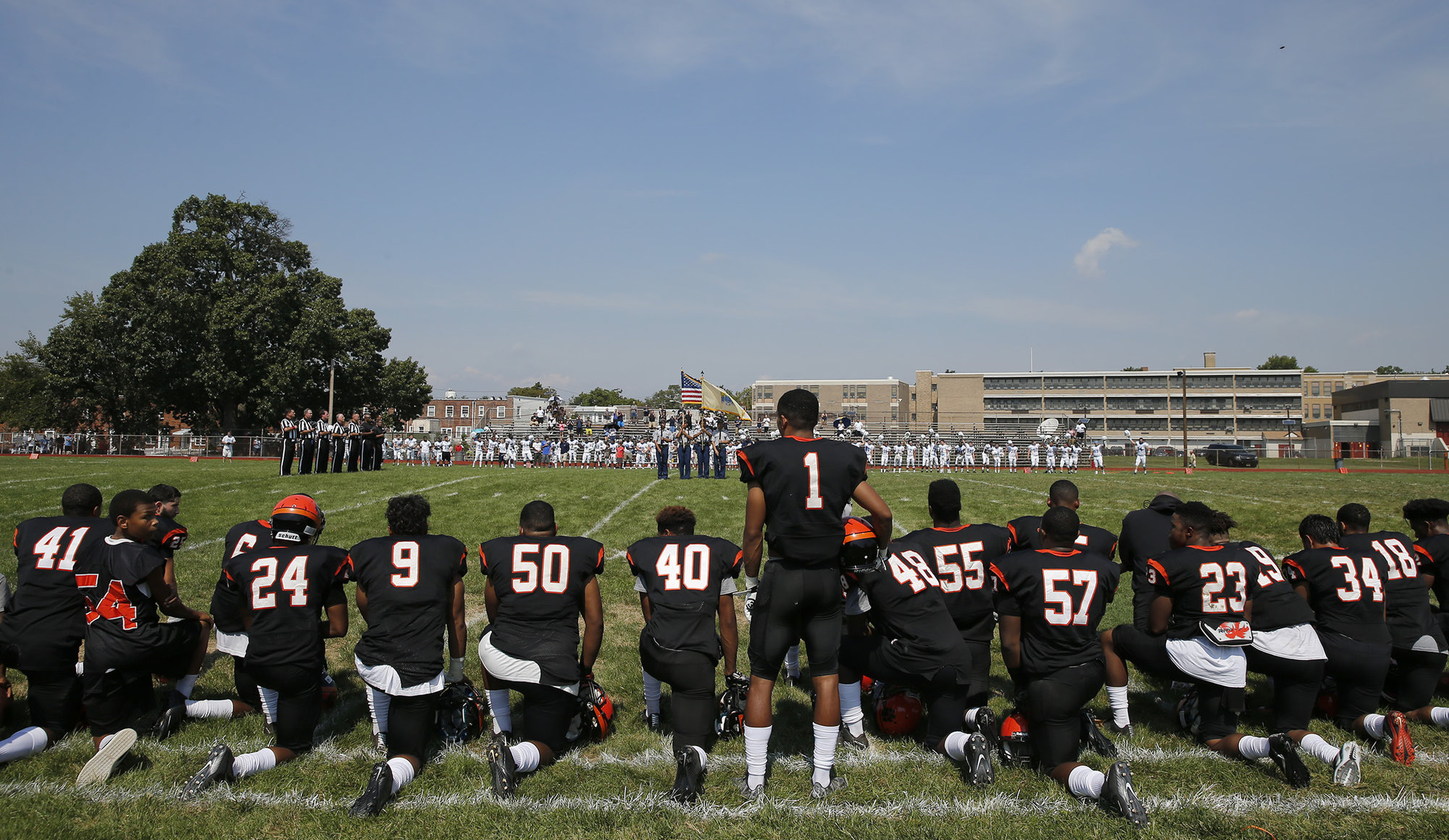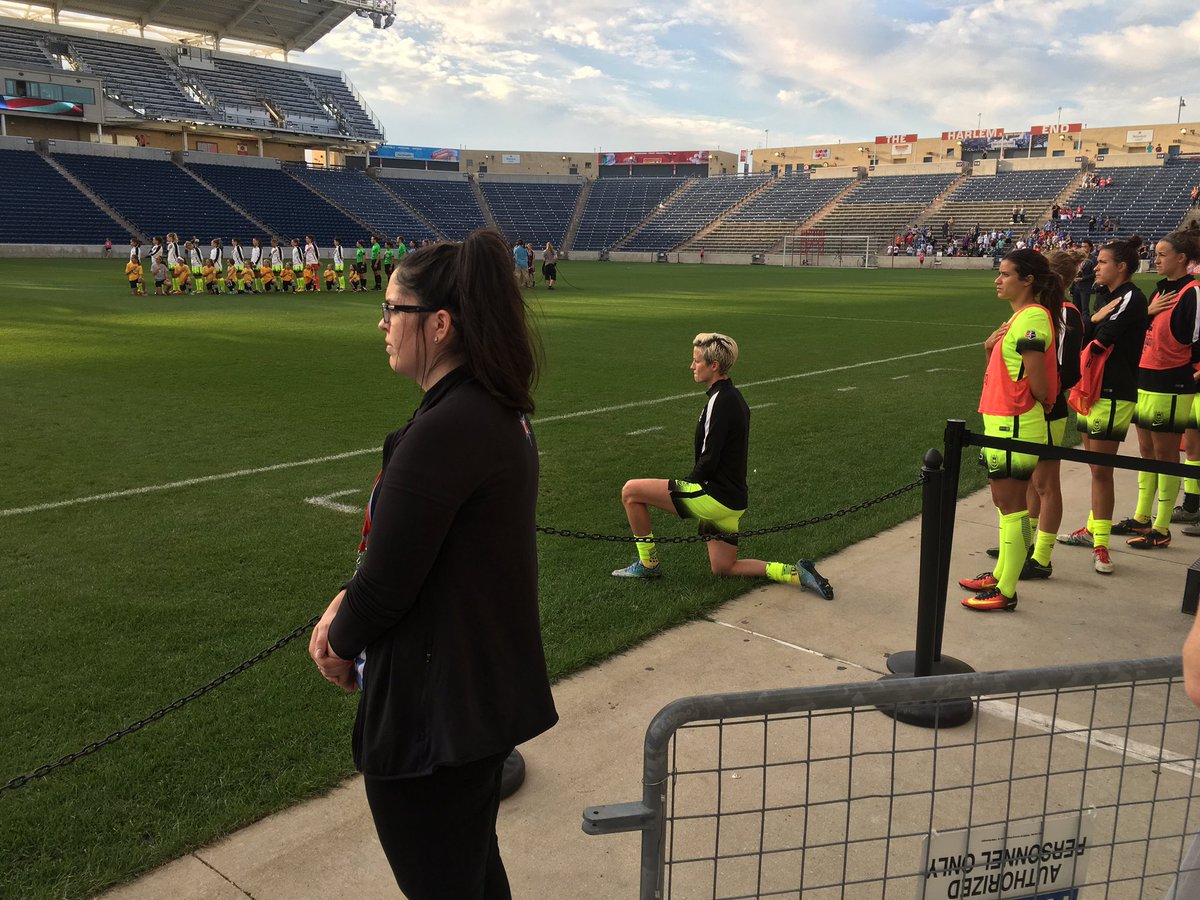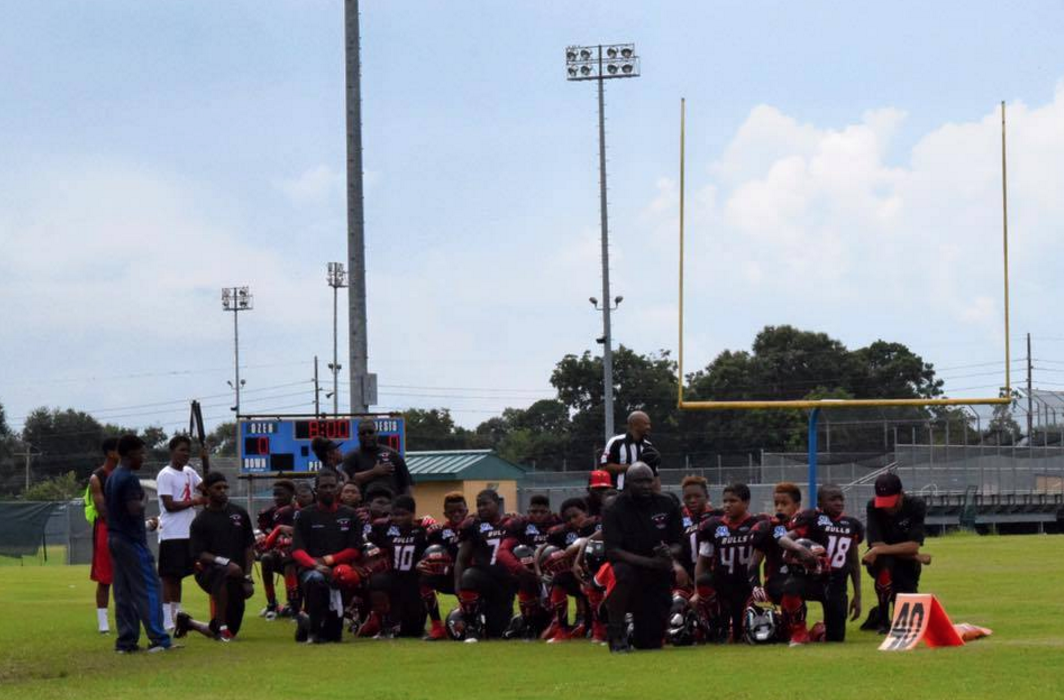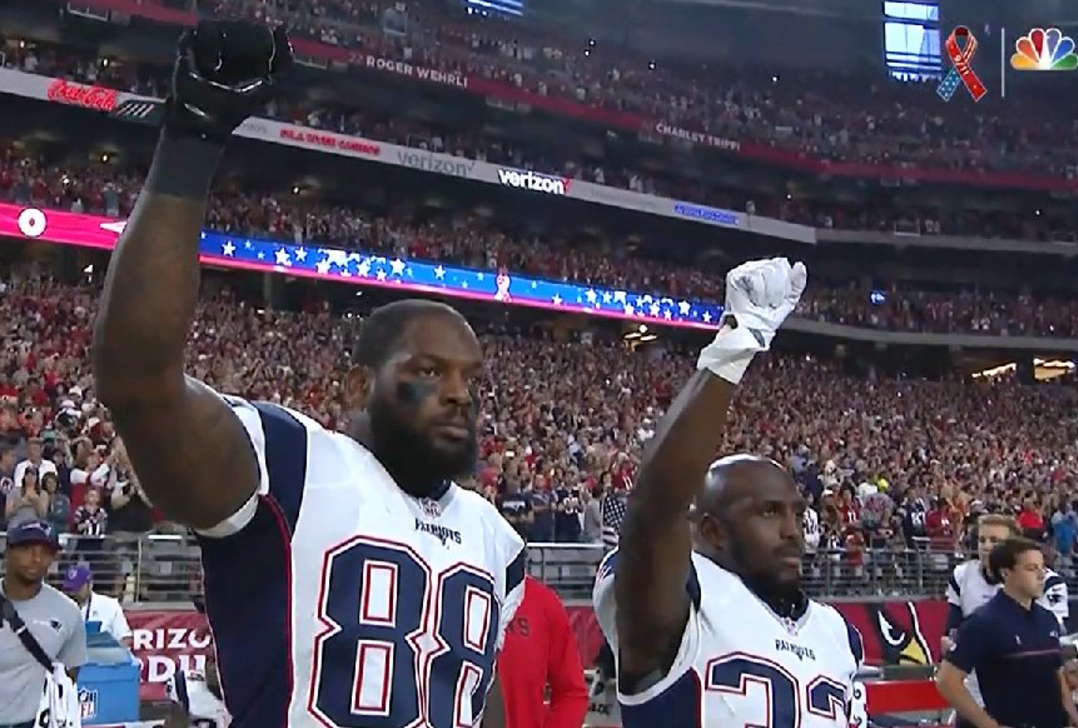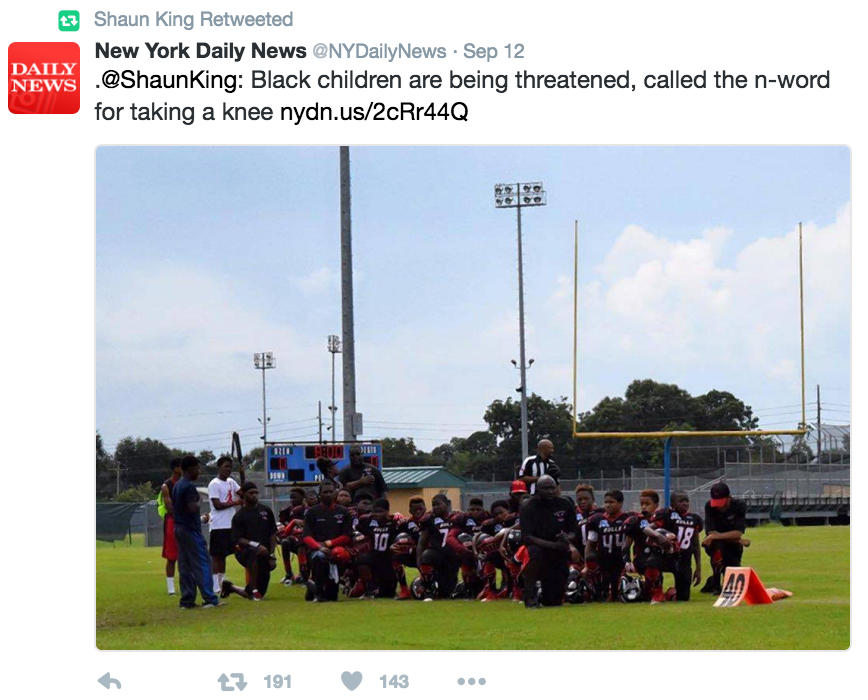Taking a Knee for Justice: Sports, Protest and Politics
By Alexis Ojeda-Brown
The year is 1968, at the Mexico City Olympics and runners John Carlos and Tommie Smith both win bronze and gold medals for the United States, respectively, in the 200m race. During the medal ceremony, as the anthem plays, both athletes hold their fists up in the air in silence until the end of the anthem. Fast forward to 2016, a preseason game between the 49ers and the Green Bay Packers is about to commence, and as the nation’s anthem is sung and everyone in the audience stands, a lone quarterback sits in silence.
Although both of these incidents are nearly 50 years apart, these athletes are protesting the same thing— the mistreatment of persons of color in America.
Colin Kaepernick, a quarterback for the 49ers, sat during the singing of the National Anthem before a preseason game on Aug. 26, to protest police brutality and advocate social justice. Kaepernick, who is in his fifth season with the 49ers, said he would not “show pride in a flag for a country that oppresses Black people and people of color,” and has made it clear that he would continue to sit during the National Anthem to show solidarity with those who have been oppressed and affected by police brutality. Despite Kaepernick’s good intentions, many took to social media to criticize his method of protesting, saying he was not only disrespectful to the anthem and the flag, but to his country and those that serve.
“I find it completely disrespectful,” stated former NFL quarterback and CBS commentator Boomer Esiason, “not only to the military, but to the men and women who wear the Blue uniform and protect our cities every—day.”
The ever-so-opinionated Tomi Lahren on her “Final Thoughts” segment on The Blaze had many colorful words for Kaepernick, including calling him a “whiny, indulgent, attention-seeking crybaby.”
NFL Commissioner Roger Goodell disagrees with Kaepernick’s choice not to stand during the National Anthem, but he recognized the quarterbacks right to protest:
“I support our players when they want to see change in society, and we don’t live in a perfect society,” explains Goodell, “On the other hand, we believe very strongly in patriotism in the NFL. I personally believe very strongly in that.”
Despite the many non-military personnel who believe what Kaepernick was disrespectful to veterans, some even going as far as to tell him to leave the country as they buy and burn Kaepernick jerseys, actual veterans had something different to say. Veterans took to social media and stared the hashtag #VeteransForKaepernick to show their support for the quarterback’s efforts to bring awareness to social injustice.
“Don’t use my service–or that of any veteran–to justify the silencing of black Americans. Not on my watch,” tweets Army veteran Charles Clymer.
“I serve for his right to protest…I don’t serve for police brutality”
“I have great respect for the men and women that have fought for this country,” Kaepernick told the press, “…they fight for freedom, they fight for the people, they fight for liberty and justice, for everyone,”
“People are dying in vain because this country isn’t holding their end of the bargain up, as far as giving freedom and justice, liberty to everybody.”
Since Kaepernick first protested, 17 others in the NFL have joined him . Fellow Teammate Eric Reid, knelt beside Kaepernick during the National Anthem on the San Diego Chargers’ “Salute to the Military night.” Brandon Marshal, wide receiver for the Denver Broncos, knelt before a matchup against the Carolina Panthers and he lost sponsors because of his actions. Jurrell Casey, Jason McCourty and Wesley Woodyard, who all play for the Tennessee Titans, raised their fists after the anthem at their game against the Minnesota Vikings.
“A lot of times, a lot of people don’t want to address the issues, and they want us to sit back and be quiet about it,” explained Casey.
And it’s true, when it comes to sports— especially football— there seems to be no room for politics or social activism. Last year’s Super Bowl halftime performance was proof of that. Beyoncé’s riveting and Black Panther inspired performance of Formation during the Super Bowl halftime show was met with criticism from Football fans who believed that the Black Lives Matter “agenda” she was trying to push wasn’t appropriate for the Super Bowl and people even went so far as to start #BoycottBeyoncé on social media.
So what is appropriate? If Beyoncé’s performance was about Domestic Violence, or Animal cruelty I’m sure no one would have had a problem with it, if Kaepernick said “Blue Lives Matter” or “All Lives Matter” no one would have started the #boycottNFL hashtag and asked for his removal from the team. But because their message is about the racial inequalities Black people face in America, it is deemed “inappropriate.”
NFL players have a huge platform, nothing is more American than watching Sunday night football, so if these players know they can reach a huge audience to bring attention to a serious problem, why can’t they?
The problem isn’t being political at sports events the problem is being the wrong type of political— the political that reminds people that while they are sitting on the couch enjoying their wing platters and chugging their Natty, there is a mom somewhere who is still mourning her 17-year-old son’s senseless death because an officer felt that a hoodie and a pack of Skittles was threatening, that there is child who is traumatized from seeing their father being pinned to the ground by police, being shot to death, on his twitter feed over and over again.
Since Kaepernick’s stand for social justice, many athletes all over the nation, not only at the professional level, but from college all the way down to boys and girls club teams, are taking a knee for justice— proving that although America isn’t necessarily the land of the free it definitely is the home of the brave.


